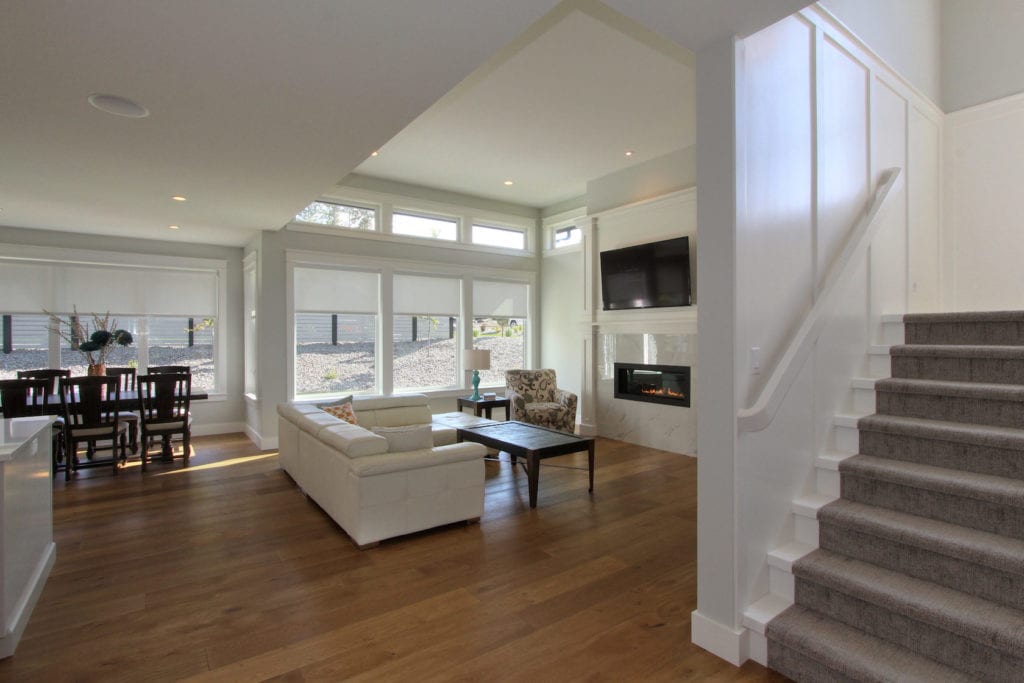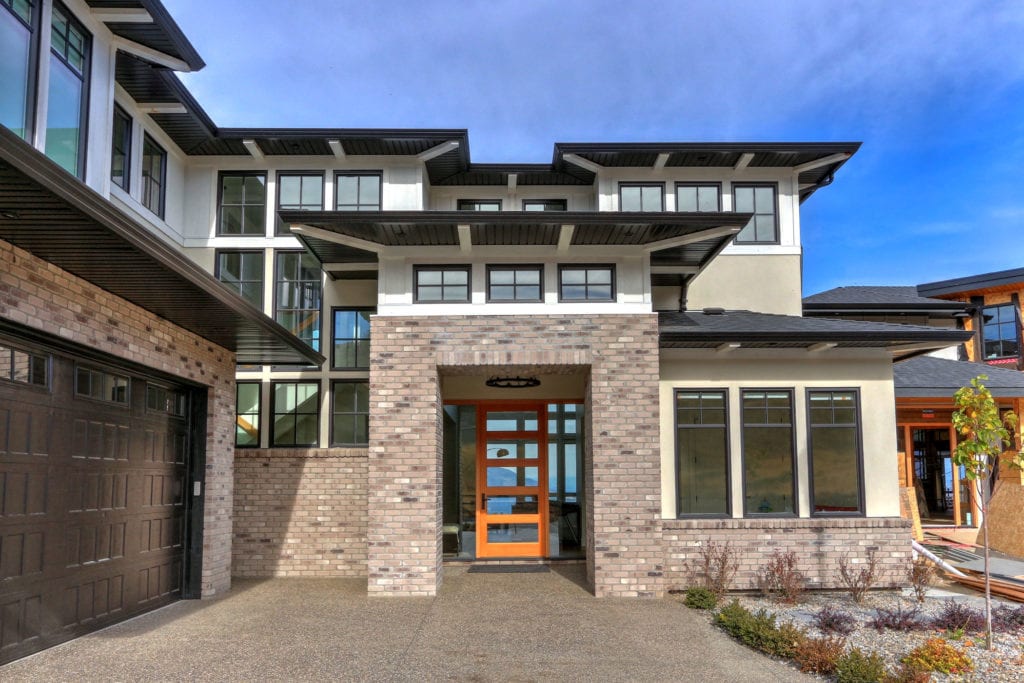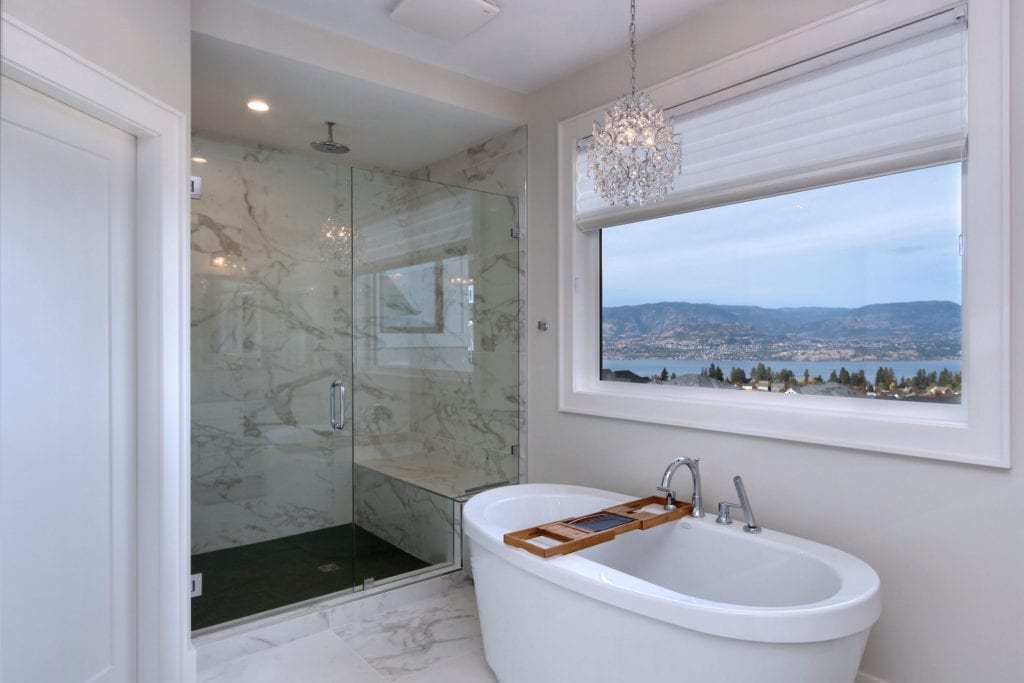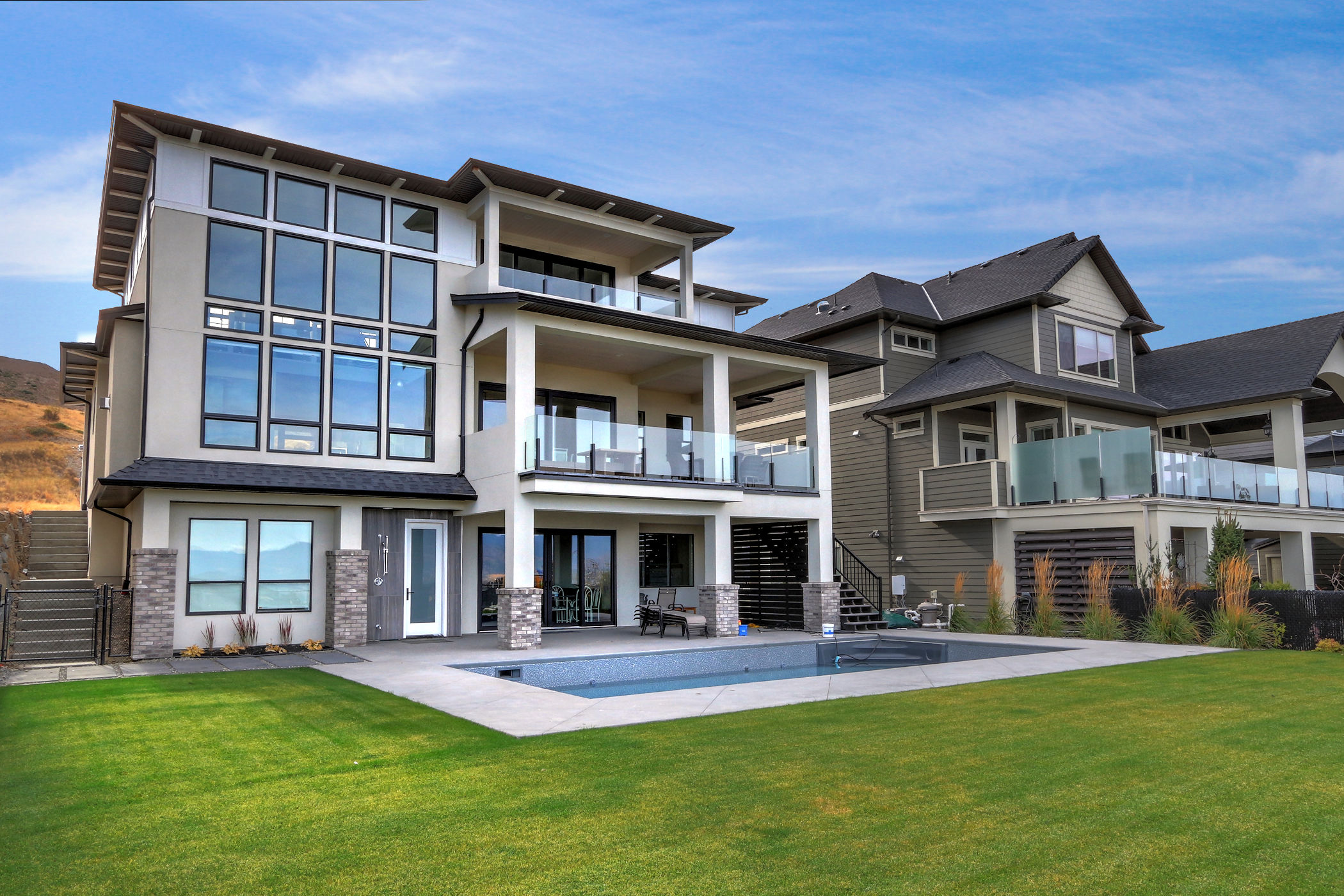Picture your typical weekday morning. Before you open your eyes, you inhale the smell of freshly brewed coffee. Your blinds gradually open, slowly letting in the early morning sun. As the light rays reach your bed, you’re greeted with soft music, gradually increasing in volume through built in speakers. You peacefully wake, and the house wakes up with you.
With smart technology, home automation is at your fingertips. Whether it’s energy-saving bulbs or a temperature-controlled, motion-sensing shower, how automated is up to you. For custom home builders, automation is no longer a question of yes or no, but how much.
Stark Homes is a custom builder that specializes in one-of-a-kind. Never building the same home twice, we consider the client and their unique needs to be the most influential factor in our builds. If you’re looking for a starting point or some inspiration, you’ve come to the right place. In this article we’ll talk about what makes a home smart and some options available on the market.
What is a Smart Home?
At its core, a smart home has the ability to remotely control its systems, appliances and electronic devices. Whether it’s through an in-home hub, a remote, an app or voice control, smart technology adds automation to the various systems in your home.
The main reasons for automation are control, convenience, and comfort. This may be in the form of surveillance systems that let you monitor your property while on vacation, or a finer control of the energy and water that you use.
A smart home doesn’t have to mean full-scale automation either, it just means implementing technology that makes managing your home easier. Smart is an area that is expanding rapidly. Homeowners have the choice of many different products and services to best suit their needs.
Areas of Smart
Entertainment & Convenience
Home Theatres

For cinematic experiences, projectors and screens form the foundation of many smart home theatres. For living spaces that only turn into theatres on occasion, smart TVs are a popular alternative. Bluetooth enabled hydraulic lifts and custom cabinetry can hide devices while not in use, allowing for concealment and getting the most out of a space. Built in TVs or flush wall mounts can also integrate your TV into your home decor, turning your electronics into components of design when not in use.
Speakers & Sound
No home theatre is complete without a surround sound setup. From wireless soundbars to built-in speakers, tailored setups create crystal clear, immersive sound experiences. For the rest of the home, smart speakers allow for audible connectivity. Music can be transmitted between rooms and operated on timers for serene soundscapes at any time of day.
Enhanced Appliances
Smart appliances can add automation throughout the entire home, but where these devices shine and gain the most attention is in the kitchen. From voice-activated microwaves and induction stoves, to cameras that let you visualize your fridge contents while grocery shopping, smart appliances in the kitchen are making everyday life easier.
Smart Plugs
Smart plugs may seem less important than large home theatres and appliances, but these small smart home devices give life to lights, coffee makers, and other small appliances. You can set lights to turn on when you walk into a room, devices to power down when not in use, or even create schedules for appliances to fit with your daily routines.
Comfort & Security
Home Security Systems

Smart security systems are highly customizable, allowing for setups that can be professionally integrated into your home build or added afterwards. These systems can be monitored by your own devices or by an external surveillance team. The level of home defense is up to you
Smart security is often a combination of an alarm system, indoor and outdoor cameras with video recording (DVR), an interactive doorbell and motion sensors. In addition to providing safety and protection, implementing these systems can also provide savings on home insurance.
Keyless, Digital Entry
As a continuation of home security, Smart Locks provide homeowners with the ability to secure their doors without a traditional key-lock system. This access can be semi-manual via fingerprint or keypad entry, or done remotely via an app, voice command or geolocation. Timers can be used to limit access via schedules, and notifications can alert homeowners when a door has been opened.
Indoor & Outdoor Cameras
While home cameras are most often used for security purposes, their functionality doesn’t stop there. Wireless cameras let parents check on children’s safety and whereabouts, and video intercom systems provide communication between parts of the home. Pet-friendly cameras can allow for checking in and interacting with pets, and can even dispense treats while owners are away from home.
Garage Doors
Forgot to close the garage door? With integrated smart technology, you can easily control the door remotely, dictate who has access, and receive notifications when it’s been opened or closed.
Energy & Water Consumption
Smart Thermostats & HVAC
Smart thermostats can control spending on heating and cooling when you’re not home. You can monitor and remotely adjust temperature, humidity and airflow, optimizing your home’s energy expenditure and saving money in the process.
In addition to savings via a reduced energy consumption, energy-efficient devices are often incentivized through rebate programs for new home construction. Energy-saving benefits have given incentives for homeowners and builders alike, and many are considering implementation, even before striking ground.
Electricity & Lighting
Part of an energy-savings program includes lighting and electricity. Beyond switching off lights that aren’t in use, home energy monitors can track electricity usage and costs. This data can guide adjustments for preventing unnecessary usage. Most smart lighting systems use LED bulbs, which are more efficient and longer lasting than traditional incandescent alternatives.
Above cost savings, smart lighting provides convenience, safety and ambience for homeowners. Smart systems can adjust the brightness of lighting by owner preference or time of day. They control lighting remotely throughout the home, increase security via motion sensor triggers, and even provide scheduled lighting to match your daily routines.
Water Consumption

Controlling water use is another way to improve home efficiency and save money. Water monitors can record water usage and track leaks in your home. For bridging luxury and energy efficiency, smart showers can provide constant water temperature with different settings for individual family members. Scald protection adds a level of safety, and voice-activated or app adjustments can save time in your morning routine.
Your Home Ecosystem
Controlling a smart house has become even easier with advancements in interactive voice control. However, having the ability to control everything via app or a master panel has its advantages as well. Controlling everything from one system, whether you’re sitting on the couch or away on vacation, is the new ideal for smart homes.
Smart technology is moving towards a centralized experience, rather than a collection of individual devices. For a connected house, a smart hub or ecosystem is a great way to manage all of your smart tech from one interface.
Smart with Stark Homes
Building a smart home doesn’t require full automation or the most advanced technology. Building smart can simply be small adjustments that make everyday tasks easier, adding convenience and efficiency to your home. At Stark Homes, we let our clients’ needs guide our builds and communicate frequently throughout the entire building process.
The beauty of building a custom home is that you decide what’s important. If you’d like to learn more about smart home integrations and custom builds, we’d love to chat. We can walk you through smart home options and design a home that best fits your lifestyle. Reach out today to get started.

